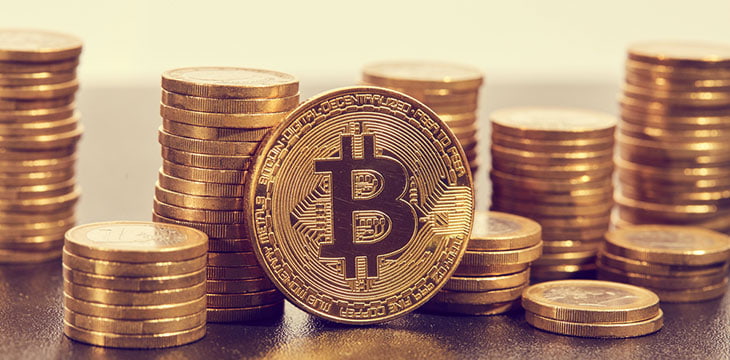|
Getting your Trinity Audio player ready...
|
The Bitcoin token recovery process doesn’t require a ‘fork’ of the blockchain, be it soft, hard, or sterling silver.
Most of us will recall with some unease our first formal dinner, at which we were presented with what appeared to be a serious overabundance of forks. Confusion reigned until someone helpfully whispered to us that we start from the outside and move inward with each course. Relieved by this knowledge, we recovered our sense of decorum and went back to regaling our dinner companions with witty anecdotes. (Sure we did.)
Similar confusion appears to reign regarding the role—or lack thereof—of ‘forks’ in the process of token recovery on the Bitcoin blockchain. The recovery issue has been in the spotlight largely due to the efforts of Tulip Trading Limited (TTL) to convince a U.K. court that blockchain developers owe fiduciary and tortious duties to blockchain users who have been the victim of digital asset theft.
Earlier this month, the U.K. Court of Appeal unanimously overturned a High Court decision to dismiss TTL’s case against the blockchain developers, paving the way for a full trial on the issue. The judges’ ruling stated that digital assets are “entrusted into the care of the developers,” who may “realistically” have “a duty to act to introduce code so that an owner’s Bitcoin can be transferred to safety in the circumstances alleged by Tulip.”
TTL is owned by Dr. Craig Wright, the real-world figure behind Satoshi Nakamoto, the pseudonymous author of the 2008 Bitcoin white paper. TTL is endeavoring to recover over £1 billion worth of digital assets, the private keys to which were stolen in a 2021 hack of Wright’s computer.
Wright’s original Bitcoin protocol contained an Alert Key function intended to notify Bitcoin miners to freeze tokens stolen from their rightful owner(s). But this function was permanently disabled by the developer group known as Bitcoin Core, many of whom are among those being called to task in the TTL case before the U.K. courts.
Wright has championed efforts to reintroduce some legal sanity to ownership of blockchain assets through the Digital Asset Recovery process. Predictably, this has earned him the usual brickbats from supporters of the BTC token that emerged from the developers’ vivisection of the original Bitcoin protocol (now safely preserved in the form of Bitcoin BSV, aka BSV).
Last October, the Bitcoin Association for BSV launched the Blacklist Manager software tool to permit miners to freeze digital assets on the BSV blockchain—provided that a court order or equivalent documentation has been secured. Blacklist Manager is a key plank of Digital Asset Recovery, which maintains that a blockchain isn’t some anarchic free-for-all space where property law doesn’t apply.
There’s no question that the current system—in which victims of theft have to plead with exchanges or coin mixers not to allow thieves to convert stolen tokens and obfuscate the trail of digital breadcrumbs—is untenable. When your hopes of recovering your property rely on dodgy exchanges like Binance—a key conduit for criminal darknet marketplaces—then abandon all hope, ye who transact here.
Freeze, remove, reissue
The YouTuber known as Crypto Kid T.V.! recently discussed Wright’s efforts with Ruadhan O, founder of Seasonal Tokens, an Ethereum/Polygon-based “cyclical cryptocurrency ecosystem containing four tokens: Spring, Summer, Autumn, and Winter.” The episode in question was titled ‘Bitcoin Expert Ruadhan O On Craig Wright Going to Court With $2.5 Billion Demand.’
Ruadhan believes the judges in the TTL case have made it plain that it is “unacceptable for cryptocurrency to be beyond the law,” and therefore, Wright is “very likely to succeed at getting the judges to understand how to freeze Bitcoins.” But, with no disrespect intended toward Ruadhan, his ‘Bitcoin expert’ status takes a hit when he describes the process by which TTL might be reunited with its purloined assets.
Ruadhan references Blacklist Manager, noting that the U.K. court could order the Bitcoin Core developers to add this tool to the BTC blockchain’s code. Ruadhan claims the result of this wouldn’t be the movement of stolen tokens from one address to another, merely the freezing of the stolen tokens at their current address.
But Ruadhan claims that this freezing would require a ‘soft fork’ of the blockchain, which involves wrapping a rule change into a software envelope that essentially tells blockchain nodes to ignore the rule change. That would be arguably less disruptive than a ‘hard fork,’ in which disagreement over implementing software rules causes one faction to branch off into a completely separate chain with its own ruleset.
But this is a misrepresentation of (a) what TTL is proposing and (b) what is required to accomplish that proposal. No fork—hard or soft—is necessary. Token recovery merely freezes the stolen assets, and then they are removed and reissued at the tip of the chain, with a full audit trail, so everyone recognizes their provenance.
There have been preliminary discussions of ways to further enhance this process, including incorporating country codes into Bitcoin transactions, effectively marking them with jurisdictional tags. That could permit individual jurisdictions to determine what type of transactions can be conducted within their borders, but it would also allow more focused recovery processes based on the circumstances of the individual whose assets have been stolen.
If you (legally) build it, they will come
As Wright is forever reminding us, code isn’t law; law is law. Absent that principle, digital assets will forever lurk in the financial shadows, of primary benefit to scammers, ransomware hackers, and other malefactors.
Wright says it’s disingenuous to claim that Bitcoin was designed to be outside the law and that transactions are unrecoverable. The use case presented within the white paper focuses exclusively on small casual payments, i.e., under US$500. Just like cash, reversing transactions requires a level of proof that makes applying this to small and micro-level payments impractical. For this reason, Bitcoin is designed to be unable to be reversed at very small levels.
Higher level transactions—in the case of cash, those exceeding US$10,000—require identity solutions and other provisioning that wasn’t included in the original Bitcoin release, such as know your customer (KYC) and anti-money laundering (AML) standards. While the white paper stated how identity is firewalled in Bitcoin, that doesn’t mean identity doesn’t exist. Rather, identity is firewalled off the blockchain, in wallets and other applications outside the primary Bitcoin protocol.
Johnny Jaswal is managing director and general counsel at the Toronto-based Jaswal Institute, which provides regulatory, legal, government relations, strategic, and related investment banking advisory services. Jaswal is also assisting with Token Recovery, whose mission Jaswal describes as “bringing the law to digital assets to increase the retail, institutional, and enterprise adoption of blockchain structures and digital assets by fostering confidence in these powerful systems.”
Jaswal told CoinGeek that “the suggestion that a lack of technological understanding or lost keys can lead to someone losing ownership of assets is not workable in a functioning and thriving financial system.” Referencing Ruadhan’s comments regarding the TTL case, Jaswal said that despite the work his group has been doing to raise awareness of the realities of digital asset recovery, “many still don’t have it right.”
“The most misunderstood component in the market is that, similar to the legal principles being espoused in the TTL matter, the recovery process centers on taking existing legal frameworks and applying them to blockchain technology; for example, by establishing legal ownership over an asset and implementing that ownership by mandating the enforcement of rules via the network, as stated in the Bitcoin white paper. ‘Not your keys, not your coins’ is contrary to the law and impedes the efficient operation of the market, and the work we are doing at Token Recovery is making that clear.”
Watch: Digital Asset Recovery on Bitcoin Explained

 02-16-2026
02-16-2026 




